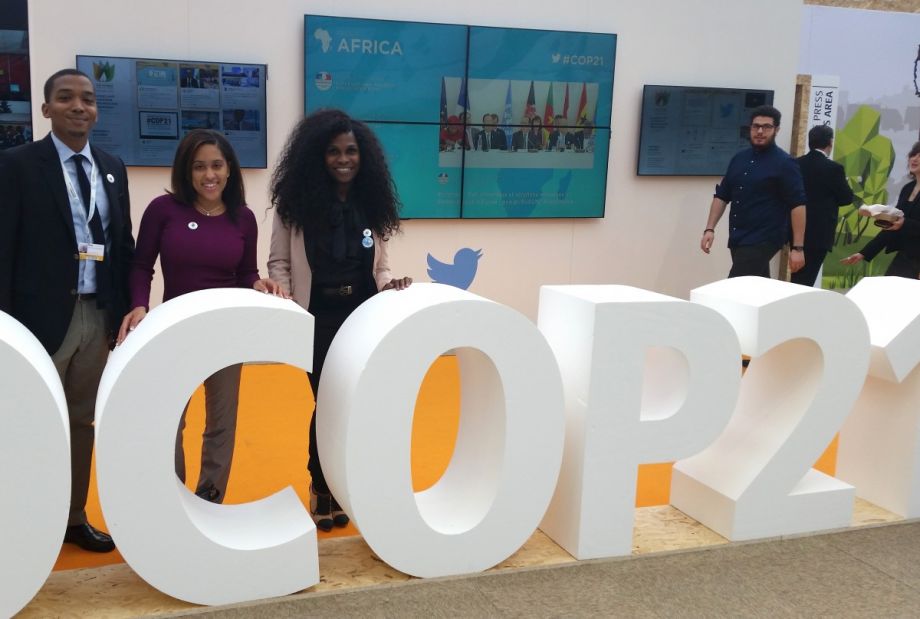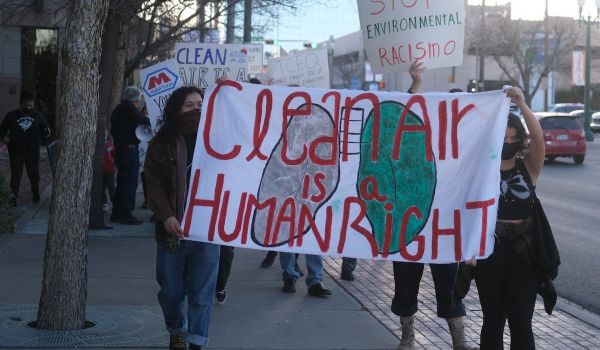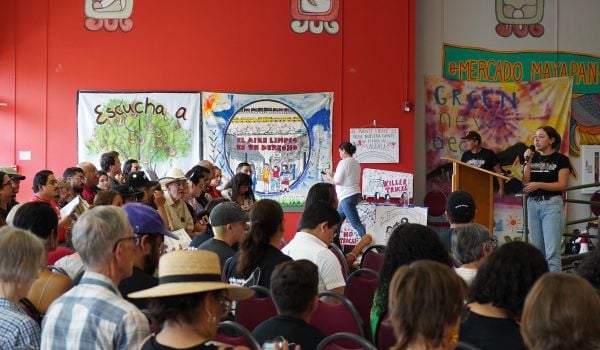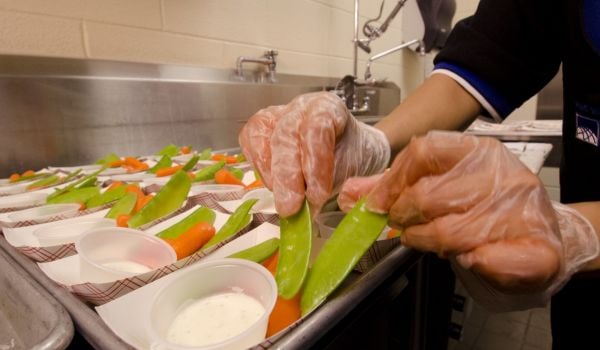Steven Washington came with a list. Not a digital one, it’s spelled out on a piece of paper — concerns that community members raised back in Houston. He’s got that list with him in Paris this week at COP21, this year’s United Nations Climate Change Conference. Washington, a Mickey Leland Scholar at Texas Southern University, is a member of a HBCU Climate Change Consortium’s delegation to the conference.
The consortium has sent 50 delegates from 15 historically black colleges and universities (HBCUs) in the U.S. This is the largest group that the consortium has ever sent.
“Too often at the previous COPs, African-American voices have been muted or absent altogether,” Robert Bullard, consortium co-founder and the dean of Texas Southern’s Barbara Jordan-Mickey Leland School of Public Affairs, writes in an email. “As soon as we stepped off the bus and proceeded to the security at the Paris Le Bourget [a conference site], the first words uttered by a guard was ‘wow.’”
Ahead of COP21, Texas Southern, along with the local branch of the NAACP and the ACLU, held a tribunal.
“It was an opportunity for frontline communities to voice and provide the testimonies, and there were certain messages they wanted us to bring here to Paris on their behalf,” Washington explains.
He pulled notes from the tribunal, and also transcriptions of 26 interviews he conducted in Houston’s Pleasantville section for his master’s thesis. There were lingering questions on the impacts of industrial accidents, calls for heightened standards for community outreach and partnerships, and hopes for a potential ban on new petrochemical refineries, among other issues. The list serves Washington as a quick reference for the talking points he needs to hit.
“That’s the charge [the community] gave me leaving Houston,” Washington says. “Pretty big charge I would say.”
According to an NAACP analysis, nearly seven in 10 of American blacks live within a 30-mile radius of a coal-fired power plant. This, as reported in The Nation, is “the zone of maximum exposure to pollutants that cause an array of ailments, from heart disease to birth defects.” Coal-fired power plants are also a major source of CO2 emissions, which contribute to climate change, and the construction (and shuttering) of them is on the table at COP21.
Along with the climate-related risks to black communities, there are risks to HBCU campuses. Joy Semien, also a delegate and Mickey Leland scholar, remembers that when she arrived at Dillard University as a freshman in 2011, post-Katrina repairs still weren’t complete. The university had been steeped in six-foot-high waters for weeks after the levees broke, suffering $400 million in damage.
Considering the South’s geography, history and the rippling effects of environmental racism, the consortium is giving the region a special focus in its advocacy work. According to the United Negro College Fund, there are currently 105 HBCUs in the United States. By Bullard’s count, upwards of 80 percent are in the South, which, research shows, saw four times the climate-related events than other parts of the country during the aughts.
Bullard calls HBCUs “the logical training ground for African-American climate justice leaders” in an email. “It is important that our students witness firsthand how global treaties are negotiated,” he writes. “What is decided in Paris is their climate future.”
Doctoral candidate N. Jenise Young, the third Mickey Leland scholar at the conference, sees students folding environmental justice into other campus causes.
“I think the boldness is there,” Young reflects. “They’re even rolling it into the Black Lives Matter campaign. Anytime there’s an abuse of resources and land … that is a thing of oppression, so students kind of gravitate to that.”
Naturally, aside from community feedback, all three delegates say they’re carving their experiences around research interests. Semien studies environmental policy and wetlands. At a session on oceanography, she says she heard dignitaries present to hazards she knew all too well: ocean acidification, carbon absorption and vulnerable ecosystems.
“Those were the biggest connections [the presenters] were able to make,” says Semien. “Regardless of where you are, it’s affecting everyone in pretty much the same way.”

Cassie Owens is a regular contributor to Next City. Her writing has also appeared at CNN.com, Philadelphia City Paper and other publications.
Follow Cassie .(JavaScript must be enabled to view this email address)
















